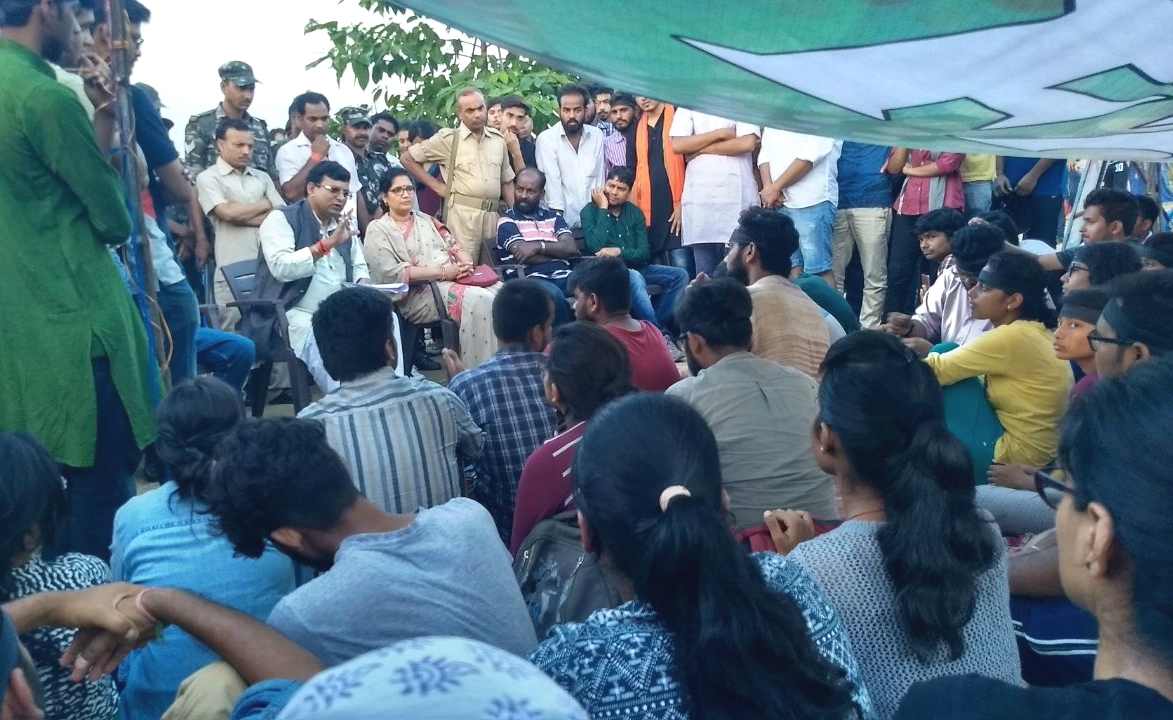Ranchi, Jharkhand | April | 03, 2020 :: On 31 March 2020, Jharkhand recorded its first case of COVID-19 in the state capital Ranchi.
Sadly, the time we all have been preparing for has come.
The disease has entered our borders, and strictly adhering to the government’s instructions, practicing social distancing, regular handwashing and maintaining respiratory hygiene is critical towards containing the spread of infections.
I am aware that all of us in Jharkhand are doing our best to keep ourselves and our families safe.
Sound preparation, based on scientific evidence, is what is needed at this time.
Misinformation during times of a health crisis can result in people being left unprotected or more vulnerable to the virus.
It can also spread paranoia, fear, and stigmatization, and have other consequences like offering a false sense of protection.
Millions of us are confined indoors, and it is understandable that many of us, and our children, are feeling overwhelmed and anxious.
It is easy to feel overwhelmed by everything we are reading, watching and hearing about the coronavirus.
Children, especially, might find it difficult to understand what they are seeing online or on TV – or hearing from other people – so they can be particularly vulnerable to feelings of anxiety, stress and sadness.
But having an open, supportive discussion with children can help them understand, cope and even make a positive contribution for others.
It is important to acknowledge children’s feelings and assure them that it is natural to feel scared about these things.
This will help create a safe environment at home.
Activities like storytelling, drawing and play can help start a discussion.
These discussions are a good time to remind them about good respiratory hygiene practices like regular handwashing.
One of the best ways to keep children safe from coronavirus and other diseases is to simply encourage regular handwashing.
It is also important for children to know that people are helping each other through this global crisis with acts of kindness and generosity.
Stories of health workers, scientists and young people, among others, who are working to stop the outbreak and keep the community safe, can serve as a source of inspiration and reassurance.
While schools, coaching centers and art classes are all closed, there is no lock-down on learning.
Parents and other family members could read children’s books together, encourage children to create their own stories or change the end of a familiar story.
They could also play number games and word games together.
Many parents may not get to share much about their professions or their daily life during otherwise busy days.
They could use this time to talk to their children about their work.
While we are used to of seeing learning as a ‘formal classroom activity’, these discussions and family games help immensely in children’s cognitive and psychosocial development.
Speaking of nutrition, mothers should continue breastfeeding, should the infant or young child become sick with suspected or confirmed COVID-19, or any other illness.
In case the mother is suspected or infected with COVID-19, she can breastfeed using a mask. Additionally, it is important to eat fresh and minimally processed home cooked foods, stay hydrated, stay physically active and get a daily dose of sunlight.
Unpackaged produce, such as fruit and vegetables, and packets of consumables like milk, curd etc. must be thoroughly washed under running water.
Cooking and eating and doing domestic duties together can strengthen family bonds while also giving due support to extra needs of pregnant or nursing women and young children.
The outbreak of coronavirus has also brought with it many reports of discrimination around the world.
Coronavirus has nothing to do with what someone looks like, where they are from or what language they speak.
We must be supportive of those who get infected, while following all necessary precautions.
It is necessary that those who develop symptoms find a supportive environment which encourages them to seek early medical help.
Over the years, we have also seen evidence that domestic violence increases during epidemics, when people are confined to their homes.
This can be very harmful to the mental health of both adults and children.
Activities such as yoga and meditation can help relieve stress and create a safer and more secure environment at home.
Finally, it is also important that all of us cooperate with the government’s instructions and avoid panic.
Please stay home and be patient.
We can and we will overcome this together.




